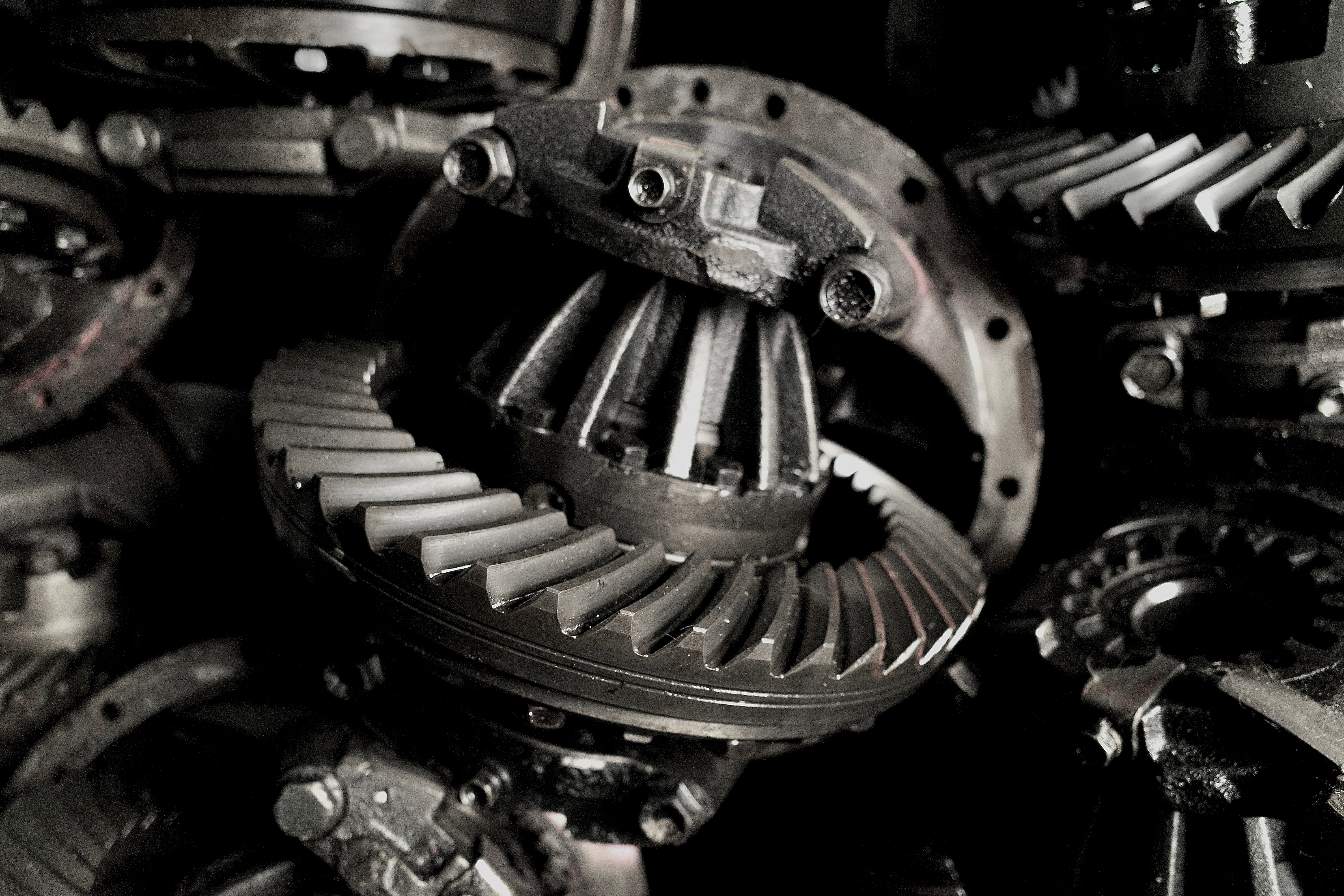

The differential is a crucial component of your vehicle’s drivetrain. It allows the wheels to rotate at different speeds, which is essential when turning corners. Without a differential, the wheels would be forced to spin at the same speed, causing tire wear and making it difficult to steer. In this month’s blog post, we explore common differential problems, how to spot them, and what can be done to correct them. We also provide some maintenance tips to keep your differential in top shape.
Common Differential Problems
- Leaking Differential Fluid: If you notice puddles of fluid under your vehicle, a burning smell, or unusual noises from the differential, your differential may be leaking.
- Causes: Worn seals or gaskets, damaged differential cover, or overfilled differential.
- Solutions: Replace the seals or gaskets, repair or replace the differential cover, and ensure the differential is filled to the correct level.
- Worn Differential Bearing: If you hear whining or howling noises, especially when accelerating or decelerating, this may be a sign of a worn differential bearing.
- Causes: Lack of lubrication, contamination, or normal wear and tear.
- Solutions: Replace the worn bearings and ensure proper lubrication.
- Damaged Ring and Pinion Gears: If you hear clunking or banging noises, vibrations, or have difficulty turning, this may be a sign that you have damaged ring and pinion gears.
- Causes: Excessive wear, improper installation, or lack of lubrication.
- Solutions: Replace the damaged gears and ensure proper installation and lubrication.
- Differential Overheating: While burning can be many things, a burning smell, smoke, or reduced performance may be a sign that your differential is overheating.
- Causes: Low or contaminated differential fluid, excessive load, or poor ventilation.
- Solutions: Check and replace the differential fluid, reduce the load, and ensure proper ventilation.
Maintenance Tips for Your Differential
There are some maintenance tasks that you can follow to keep your differential working properly.
- Regular Fluid Checks: Check the differential fluid level and condition at least once a year or as recommended by your vehicle’s manufacturer.
- Use the Right Fluid: Always use the type of differential fluid specified in your vehicle’s owner manual.
- Avoid Overloading: Excessive loads can strain the differential and cause overheating.
- Inspect for Leaks: Regularly check for signs of fluid leaks and address them promptly.
- Professional Inspections: Have your differential inspected by a professional mechanic during routine maintenance to catch any issues early.
By understanding common differential problems and how to spot them, you can take proactive steps to keep your vehicle running smoothly. Regular maintenance and prompt repairs will help ensure your differential remains in good working order, providing you with a safer and more reliable driving experience. If you would like to have your differential inspected, contact the service professionals at Car Kings to schedule an appointment.
